On Monday afternoon, two visitors from Tennessee were pulled from the Hanalei River in distress. They had lost their kayak in the rising waters and were found clinging to vegetation upriver from the Hanalei Bridge. How did they get into that situation? Whether they should have been allowed to rent kayaks when the island was experiencing bad weather (and is now under flood watch) has not yet been revealed.
Who should be held responsible: the kayak vendor or visitors?
There is growing frustration when emergency crews are called to rescue visitors or locals who disobey warning signs and end up in trouble. This puts a strain on emergency services when the situation could have been avoided. There is ongoing debate if the person who needed rescuing should be the one to pay instead of the government.
This rescue seems somewhat different on the surface. If the vendor had allowed the kayak rental during inclement weather, should the business be held accountable and responsible for the safety of its customers?
First responders transported the Hawaii visitors to medics for evaluation, and it was indeed fortunate that no injuries were reported. Kudos to the Kauai Fire Department and the Ocean Safety Bureau who sprang into action after receiving the 911 call at 3:45pm.
While Kauai Fire Chief Michael Gibson was quick to commend the emergency response, his gratitude came with a stern warning:
“With inclement weather forecast this week, we strongly advise everyone to avoid outdoor activities during these conditions. Rescues during heavy weather events are highly complex and dangerous.”
Comments and emails are already coming in, expressing strong emotions.
The public’s reaction to such rescues is largely unforgiving. Comments we’ve already received ranged from implementing financial penalties associated with still stalled bills calling for rescue reimbursement, to what is apparent disregard for safety warnings and misuse of emergency services.
Still unfolding Hawaii legislative landscape related to visitor rescues.
The incident serves to reignite the debate over whether tourists or locals should foot the bill for rescues prompted by their own recklessness. Earlier this year, Hawaii legislators again considered a bill to charge for emergency rescues, particularly those who venture off established trails or engage in risky behaviors despite warnings.
State Senator DeCoite from Maui has advocated for such measures, arguing that they would alleviate the financial burden on taxpayers.
Critics, including commenters, however, warn that these policies could deter individuals in genuine distress from seeking help. State Representative Ganadan encapsulated this concern, suggesting that the potential risks of deterring rescues might outweigh the benefits of cost recovery.
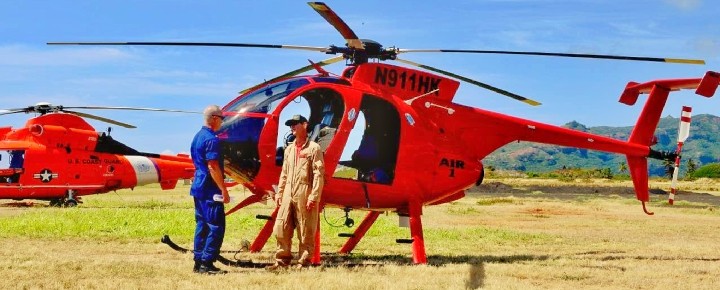

Another Kauai visitor was rescued just two weeks ago.
First responders on Kauai were also called into action just two weeks ago to rescue an injured visitor in Princeville.
A 911 call initiated the rescue of a 65-year-old Washington man who suffered a serious fall when he tumbled 15 feet onto a reef. That occurred near Kaweonui Point, a scenic area we call Sea Lodge Beach. The man was reported to have broken his leg.
Due to the complexities posed by the severity of his injury and the challenging location where it occurred, the man required an airlift to the nearby fire station. At that point, he was transferred to an ambulance for transport to the hospital.
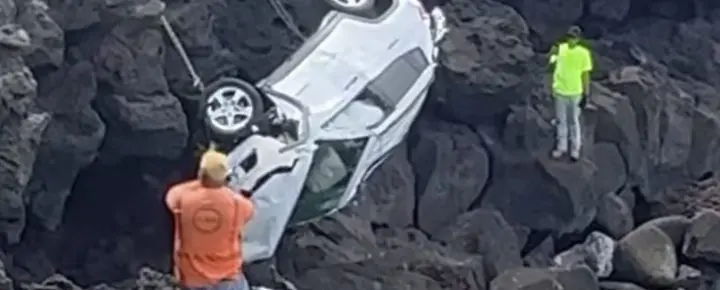

Earlier this year, a visitor’s late-night drive off a cliff sparked similar outrage and discussion. The tourist was rescued by local emergency services in another dramatic and costly operation, reinforcing calls for financial accountability.
Even before considering ocean and other rescues, Hawaii faces about 1k hiking rescues annually, representing both extreme risks to visitors and a significant drain on resources. Some states, like New Hampshire, have implemented reimbursement systems targeting the most flagrant offenders, suggesting a potential model for Hawaii.
Sentiment on this is divided but passionate. Some are adamant that tourists should pay for their folly. Others continue to caution against a blanket policy, emphasizing the need to differentiate between deliberate negligence and genuine accidents. It isn’t clear which is the case here with the kayakers.
But one commenter shared, “If it’s egregious, and clearly the visitor ignored keep out or safety signs and got into trouble, yes, they should be charged. But if it was just a normal accident or lost situation, do not charge.”
As Hawaii grapples with these incidents, a balanced approach is essential.
The rescue of these two Tennessee kayakers is a stark reminder of the bravery of Hawaii’s emergency responders and the urgent need for greater responsibility among visitors to avoid unnecessary rescues.
Ultimately, this is not just about who pays for rescues; it’s about fostering a culture of respect and caution among those who come to enjoy Hawaii’s natural beauty. Without it, the cycle of reckless behavior and costly rescues will continue to the detriment of both locals and visitors.
These incidents underscore the ongoing challenges faced by Hawaii emergency services as they respond to the needs of visitors exploring the islands’ picturesque yet too often hazardous landscapes.
Get Breaking Hawaii Travel News
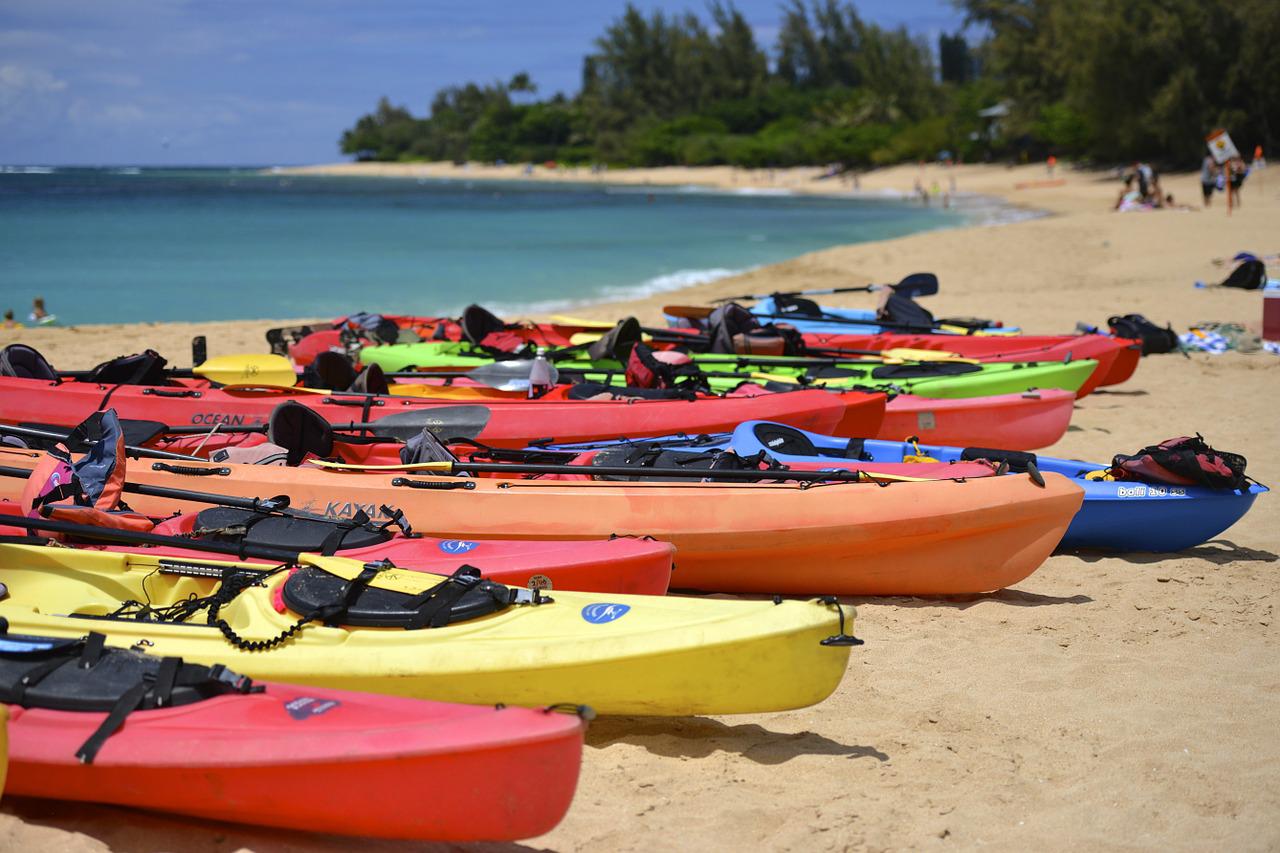
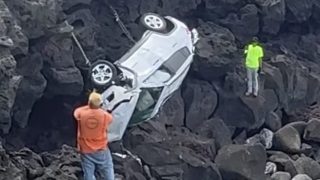



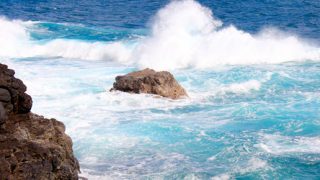
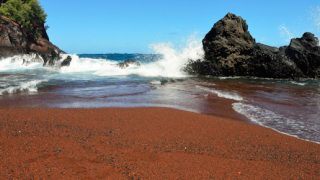
Debbie,
May I point out that you asking, “Will the super rainy weather and flood watch have passed by then?” shows not all know how the islands work. It can rain and flood there at anytime. Including a flash flood.
I will not call you stupid though.
Be safe while traveling.
And bring your checkbook just in case a rescue team has to come to your assistance
Selfish comment — I’m going to be visiting June 7-14 … will the super rainy weather and flood watch have passed by then? 🙂 mahalo! (And yes, visits should pay for their stupidity)
Weather should be better by then… but you never know with Hawaii.
Are saying visitors are stupid?
That is really unkind.
The Earth is full of different types of Mother Nature.
No one can know everything about all of it.
Calling them stupid is really uneducated.
It’s just a matter of logical consequences. People should know their limits
It happens everywhere in the world, not just Hawaii.
People getting hurt while traveling. Alot of rescues needed.
It is what it is.
Great article, BOH. This topic definitely deserves more attention. So glad that you all use your platform to raise awareness. With that said, it’s so sad when someone finally achieves their lifelong or yearly goal of visiting our beautiful islands and end up getting hurt or losing their life. How I wish people visiting (and some residents) would educate themselves about how wild and untamed Hawai’i still is. This isn’t Disneyland. I also wish that people would be modest and recognize their limitations as well. There would be far fewer accidents and tragedies if just these two principles were adhered to by everyone. But alas, that remains our hope.
As Mr. Eastwood once so famously said, “A mans got to know his limitations”
So true… especially when it comes to the ocean!
The catamarans don’t go out if dangerous, the helicopters don’t go up if not safe so why aren’t these kayak companies doing the same? Most Visitors don’t know the signs of unsafe conditions such as rain in the mountains and sunshine in the Hanalei Valley. However, I support a bill that says if you are breaking trespass sign warnings and you get hurt the rescue is on you or at least a portion of it.
Not weather related, but several year ago 3 of us rented 2 kayaks the do the kayak/hike to Wailua Falls. When we got back to our kayaks, mine was stolen and my friends had only one paddle. The thieves also took our water bottles. It was late in the afternoon, so no one else was coming, at least not in rentals. I often own how I would have gotten back if I had gone on my own. This was early cell phone days. I’m pretty sure we weren’t carrying any and certainly wouldn’t have had service there.
Aloha Rob+Jeff Well here we go again. Is it really so hard for tour operators to follow the weather forecasts? Visitors have one mindset-to do something fun. Any water activity tour/outfit should be responsible for any rescues due to negligence on their part in enforcing safety protocols. Better a few dollars short and a life saved from using common sense when you are running a water or any type of activity in a place where weather can change hourly. Come on people, use your intelligence, not your feelings when you venture out for some fun. Aloha
Should the business (renter of kayaks for the Hanalei river) rent kayaks in dangerous conditions? Both the renter and the visitors should have checked weather conditions before going.
10% of the visitors come to Hawaii completely packed for their Hawaii vacation but sadly forget to pack their common sense.
Two thoughts here;
1) if you’re coming via a tour operator/company directed trip you must sign a waiver, that waiver should include costs of rescue if you ignore the risks and warnings shared with you, that you acknowledged.
2) in the same vein, if you ignore or bypass posted signage with warnings, (which should also include a financial responsibility), you pay for your own rescue.
This argument, “cost of doing business” is ridiculous when you consider that would be a blanket statement for people do continue to make dumb decisions? There needs to be accountability built in.
Such a double standard. Locals need to get rescued every week. The state collects Billions in taxes from tourism (over 2 billion). Should I complain every time there is a rescue in California?
This situation highlights the trouble with billing fir rescue services. Who’s at fault the tourists or the rental agency? As was noted, first responders handle calls without any question of who the victim is and we pay local taxes for visitors and locals alike. Now, charging a fine for gross violations of laws or rules? 100%.
Tour operators need to warn tourists who only have a week or a few days to explore the island, that the beauty does not camouflage the danger. The exorbitant 18% transient accommodation tax should be assurance to each visitor, that if they are in danger, someone will come to their rescue. The emergency responders are amazing and we appreciate them very much. At the same time, they signed on to do this job, and are compensated very well. The attitude towards tourists has degenerated over the 40 plus years we have owned a small condo on the island. Most disappointing – the livelihood of many islanders depend on the tourists. Let’s treat them with aloha!
No doubt locals will get the standard kama’aina discount off the rescue price.
As a visitor to Hawaii yearly and a retired Firefighter/Paramedic from Chicago I will say that every local agency covers the cost of visitors who need emergency services, it’s the price of doing business. Also as costs continue to rise to visit the islands some might say that visitors pay more in taxes than most locals. The costs associated with visiting has me considering other places to visit.
More details on the circumstances of the kayakers would be helpful. Did they know the potential danger, did the rental people? Was this a case of over confident renters and rental folks only concerned about money? I’ve dived many times in HI, and the dive shop people had to twice cancel a dive because the wx was kicking up. Personal responsibility on both ends. However, if the signs at the beach say ‘dangerous undertow’, and you go into the water anyway, rescue bill should be on you, not the County.
Agreed. More information or details would have been nice, but overall,
visitors know or should know anyhow, the dangers involved in ocean activities, water activities in general, and in this case river safety. It is obvious. And it is posted.
And warnings abound.
So yes, the rescue bill should be directed to those who are putting themselves and others in harms way, it is a nuisance, and an unnecessary financial burden.
Reminds me of the dilemma-If you saw a tourist and your dog were both drowning and you could only save one, which one would it be?
Fifty tourists continue to drown every year in Hawaii- choice made.
I work in the tourism industry and book activities and tours. Were it not for me, in person, specifically asking tourists “By the way, do you know how to swim?” there are many first-timers to the islands who don’t realize that stand up paddle, kayaking, surfing, and even Snorkeling may require you to have a basic ability to swim! I encounter this often; some visitors are surprised that watercraft and even snorkel don’t magically keep you afloat without effort.
Local dogs don’t choose drowning situations if they can’t swim.
Every death is a tragedy but considering that Hawaii had between 6-9 plus million visitors in 2021 and 2022 the number of deaths should be put into perspective. I do think that when someone, visitor or local, flagrantly disregards prohibitions or warnings and gets hurt, there should be consequences. However accidents happen and people should not be penalized because of them.
It would be a dilemma If you saw your wife and your dog were both drowning and you could only save one, which one would it be 😉
Scottsdale Arizona has a ‘dumb driver’ law if you drive into a running water wash. You will be charged for the rescue.
Makes sense to do the same on the Hawaiian Islands.
I concur with this the statement “…need to differentiate between deliberate negligence / stupidity and genuine accidents.” That should be the deciding factor here.
You better dig into HFD statistics concerning who, exactly, is getting rescued. Some released data indicates trail rescues are 55% visitors, 45% locals; ocean rescues are evenly split 50% locals and visitors.
This article used the word “visitors” a lot, but unquestionably a significant percentage of rescues are locals/residents. So are locals going to pay too? Because if not, that sounds like a very clear denial of both due process and equal treatment under the law.
Jack;
When it comes to visitors and the law in Hawaii, I don’t think that “due process and equal treatment under the law” really means what you think it means. In Hawaii these concepts are more or less “fungible”.